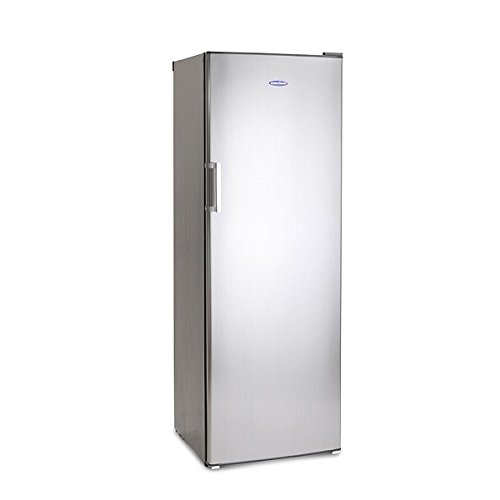Nine Things That Your Parent Taught You About Temperature-Controlled F…
본문

The Importance of Temperature-Controlled Fridges in Various Industries
Temperature-controlled fridges are an important part in numerous industries, including health care, food and beverage, pharmaceuticals, and laboratories. These specialized refrigerators are created to preserve a consistent temperature level, which is important for saving sensitive products, samples, and compounds. In this short article, we will explore the various types of temperature-controlled fridges, their applications, and the benefits they use.
What are Temperature-Controlled Fridges?
Temperature-controlled fridges, also referred to as precision refrigerators, are created to keep a precise temperature level range. They are geared up with innovative temperature level control systems, which can be set to specific temperatures, and are designed to lessen temperature level fluctuations. These fridges are offered in different sizes, from small, compact units to large, walk-in models.
Types of Temperature-Controlled Fridges
There are numerous kinds of temperature-controlled fridges, each created for particular applications:
- Laboratory Refrigerators: These fridges are developed for lab settings and are generally utilized to keep biological samples, vaccines, and other temperature-sensitive materials.
- Pharmaceutical Refrigerators: These fridges are created for saving pharmaceutical products, including medications, vaccines, and other temperature-sensitive substances.
- Medical Refrigerators: These fridges are developed for medical settings and are generally used to save medical materials, consisting of vaccines, blood, and other temperature-sensitive materials.
- Food and beverage coolers Refrigerators: These retro fridges are designed for food and beverage applications, including restaurants, cafes, and catering services.
- Industrial Refrigerators: These fridges are developed for commercial applications, including food processing, production, and storage.
Applications of Temperature-Controlled Fridges
Temperature-controlled fridges have different applications throughout various markets:
- Healthcare: Temperature-controlled fridges are used in medical facilities, centers, and healthcare centers to store medical supplies, consisting of vaccines, blood, and other temperature-sensitive products.
- Food and Beverage: Temperature-controlled fridges are used in restaurants, cafes, and catering services to save food and beverages at exact temperature levels, ensuring food safety and quality.
- Pharmaceuticals: Temperature-controlled fridges are used in pharmaceutical production, storage, and distribution to maintain the quality and effectiveness of medications and vaccines.
- Laboratories: Temperature-controlled fridges are utilized in labs to save biological samples, vaccines, and other temperature-sensitive products.
Benefits of Temperature-Controlled Fridges
Temperature-controlled fridges use a number of benefits, consisting of:
- Precision Temperature Control: Temperature-controlled fridges offer exact temperature level control, which is necessary for saving sensitive products, samples, and compounds.
- Increased Safety: Temperature-controlled fridges ensure the safe storage of temperature-sensitive materials, lowering the danger of contamination and spoilage.
- Improved Quality: Temperature-Controlled Fridges; Timeoftheworld.Date, maintain the quality of products, samples, and substances by saving them at precise temperatures.
- Regulative Compliance: Temperature-controlled fridges help organizations abide by regulatory requirements for the storage of temperature-sensitive materials.
- Energy Efficiency: Temperature-controlled fridges are created to be energy-efficient, lowering energy consumption and expenses.
Functions to Consider When Choosing a Temperature-Controlled Fridge
When picking a temperature-controlled fridge, think about the following features:
- Temperature Control: Look for a fridge with advanced temperature control systems, including digital temperature level screens and alarms.
- Insulation: Choose a fridge with high-quality insulation to reduce temperature level variations.
- Shelving: Consider a refrigerator with adjustable shelving to accommodate various sizes and types of containers.
- Humidity Control: Look for a fridge with humidity control features to maintain optimum humidity levels.
- Security: Choose a refrigerator with protected locking mechanisms to prevent unapproved access.
- Monitoring: Consider a refrigerator with remote tracking abilities to track temperature and humidity levels.
- Maintenance: Look for a refrigerator with easy upkeep features, including replaceable filters and cleaning up systems.
Frequently Asked Questions
Q: What is the difference between a temperature-controlled fridge and a basic fridge?
A: A temperature-controlled fridge is designed to keep an accurate temperature variety, while a standard fridge is designed for general-purpose storage.
Q: What are the advantages of using a temperature-controlled refrigerator in a lab setting?
A: Temperature-controlled fridges in lab settings provide accurate temperature level control, increased safety, improved quality, and regulatory compliance.
Q: How do I select the ideal temperature-controlled fridge for my company?
A: Consider elements such as temperature level control, insulation, shelving, humidity control, security, monitoring, and upkeep when selecting a temperature-controlled refrigerator.
Q: Can temperature-controlled fridges be used for storing food and chilled drinks?
A: Yes, temperature-controlled fridges can be utilized for storing food and beverages, particularly in dining establishments, cafes, and catering services.
Q: Are temperature-controlled fridges energy-efficient?

A: Yes, temperature-controlled fridges are created to be energy-efficient, reducing energy consumption and costs.
In conclusion, temperature-controlled fridges are essential parts in numerous markets, providing precise temperature level control, increased safety, improved quality, and regulative compliance. When choosing a temperature-controlled refrigerator, consider features such as temperature level control, insulation, shelving, humidity control, security, tracking, and upkeep. By selecting the best temperature-controlled fridge, companies can ensure the safe and efficient storage of temperature-sensitive materials.

